-
 Bitcoin
Bitcoin $119600
0.72% -
 Ethereum
Ethereum $4175
-0.54% -
 XRP
XRP $3.207
0.44% -
 Tether USDt
Tether USDt $0.9997
-0.03% -
 BNB
BNB $795.8
-0.80% -
 Solana
Solana $178.4
-0.74% -
 USDC
USDC $0.9998
-0.01% -
 Dogecoin
Dogecoin $0.2273
-2.09% -
 TRON
TRON $0.3405
-0.28% -
 Cardano
Cardano $0.7864
-0.90% -
 Hyperliquid
Hyperliquid $44.43
1.35% -
 Chainlink
Chainlink $21.29
-0.96% -
 Stellar
Stellar $0.4411
0.55% -
 Sui
Sui $3.715
-2.92% -
 Bitcoin Cash
Bitcoin Cash $583.0
2.23% -
 Hedera
Hedera $0.2521
-2.12% -
 Ethena USDe
Ethena USDe $1.000
-0.05% -
 Avalanche
Avalanche $23.18
-1.96% -
 Litecoin
Litecoin $125.0
2.79% -
 Toncoin
Toncoin $3.311
-0.44% -
 UNUS SED LEO
UNUS SED LEO $8.996
-0.53% -
 Shiba Inu
Shiba Inu $0.00001305
-2.49% -
 Uniswap
Uniswap $10.60
-0.11% -
 Polkadot
Polkadot $3.910
-2.51% -
 Dai
Dai $0.9999
-0.03% -
 Cronos
Cronos $0.1640
2.00% -
 Ethena
Ethena $0.7932
4.93% -
 Bitget Token
Bitget Token $4.371
-1.10% -
 Monero
Monero $267.2
-1.09% -
 Pepe
Pepe $0.00001154
-3.46%
What are the differences between option contracts and delivery contracts?
Option contracts provide the buyer the right to buy or sell an underlying asset, offering potential for limited risk and unlimited reward, unlike delivery contracts, where both parties are obligated to fulfill the contract on the settlement date, carrying the risk of unpredictable price movements.
Feb 22, 2025 at 11:42 am
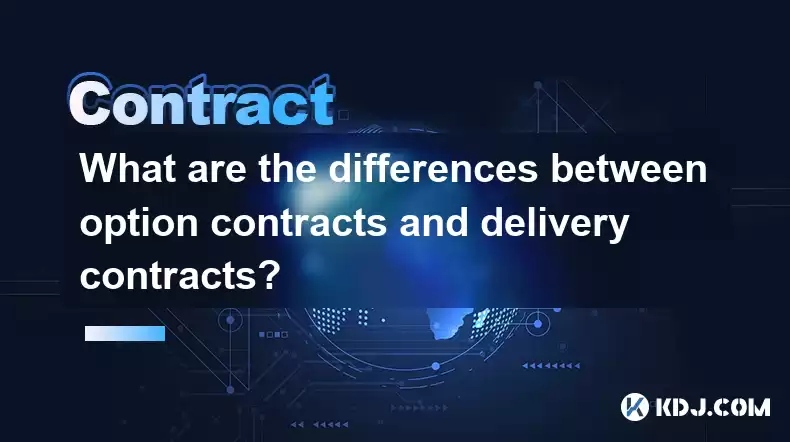
Key Points:
- Definition of option contracts and delivery contracts
- Comparison of option contracts and delivery contracts
Article Content:
Definition of Option Contracts
- Option contracts are agreements that grant the buyer the right, but not the obligation, to buy or sell an underlying asset at a specified price (strike price) on or before a certain date (expiration date).
- The buyer of an option contract pays a premium to the seller for this right.
- There are two types of option contracts: calls and puts.
- Call options give the buyer the right to buy the underlying asset at the strike price.
- Put options give the buyer the right to sell the underlying asset at the strike price.
Definition of Delivery Contracts
- Delivery contracts are agreements to buy or sell an underlying asset at a specified price (spot price) on a specified date (settlement date).
- Both the buyer and seller are obligated to fulfill the contract on the settlement date.
- The price of the underlying asset is typically determined by the market at the time of the delivery.
- There are various types of delivery contracts, including futures contracts, forward contracts, and physical delivery contracts.
Comparison of Option Contracts and Delivery Contracts
Rights and Obligations:
- Option contracts: Buyer has the right to buy or sell the underlying asset, but no obligation to do so. Seller has the obligation to fulfill the contract if the buyer exercises the option.
- Delivery contracts: Both buyer and seller have the obligation to fulfill the contract on the settlement date.
Premium:
- Option contracts: Buyer pays a premium to the seller for the right to buy or sell the underlying asset.
- Delivery contracts: No premium is paid, but the price of the underlying asset may vary from the spot price at the time of the contract.
Expiration Date:
- Option contracts: Have a specified expiration date after which the contract expires.
- Delivery contracts: Typically have a specific settlement date on which the underlying asset is delivered.
Underlying Assets:
- Option contracts: Can have various types of underlying assets, including stocks, commodities, currencies, and indices.
- Delivery contracts: Typically have specific underlying assets, such as commodities or currencies.
Risks and Rewards:
- Option contracts: Provide potential for limited risk and unlimited reward. Buyer can lose the premium but never more than that.
- Delivery contracts: Carry the risk of unpredictable price movements, which can lead to both gains and losses.
Trading Exchange:
- Option contracts: Traded on various exchanges, such as the Chicago Board Options Exchange (CBOE).
- Delivery contracts: Traded on regulated futures exchanges, such as the Chicago Mercantile Exchange (CME) and Intercontinental Exchange (ICE).
Suitability for Investors:
- Option contracts: Suitable for investors with higher risk tolerance and good understanding of market fluctuations.
- Delivery contracts: Suitable for investors who intend to take delivery of the underlying asset or hedge against price volatility.
FAQs:
- What is the difference between a call option and a put option?
Call options give the buyer the right to buy the underlying asset, while put options give the buyer the right to sell the underlying asset.
- What are the risks involved in trading option contracts?
The risks include losing the premium paid, potential for margin calls, and market fluctuations.
- What is the settlement process for delivery contracts?
On the settlement date, the underlying asset is delivered to the buyer while the seller receives the agreed-upon price.
- Who benefits from option contracts?
Investors seeking to profit from market fluctuations, protect against potential losses, or speculate on future asset prices.
- Who benefits from delivery contracts?
Investors intending to take physical delivery of the underlying asset or hedging against price volatility.
Disclaimer:info@kdj.com
The information provided is not trading advice. kdj.com does not assume any responsibility for any investments made based on the information provided in this article. Cryptocurrencies are highly volatile and it is highly recommended that you invest with caution after thorough research!
If you believe that the content used on this website infringes your copyright, please contact us immediately (info@kdj.com) and we will delete it promptly.
- Superman Takes Flight: A Deep Dive into the Comic Program and Coin Medals
- 2025-08-11 20:30:12
- Shiba Inu's Comeback Trail and the Meme Coin Mania: Can $SHIB Deliver a 12,000x Return?
- 2025-08-11 18:30:11
- Proof of Trust, Transparency, and User Safety: Keeping Crypto Real
- 2025-08-11 18:50:12
- Pudgy Penguins, Bitcoin Penguins, and the $22M Meme Coin Mania: A New York Perspective
- 2025-08-11 17:10:11
- Bitcoin L2 Heats Up: SatLayer (SLAY) Lists on KuCoin Amidst Layer-2 Boom
- 2025-08-11 16:50:12
- Ethereum, Coin Market Cap, and Solfart Token: A Wild Ride in the Crypto Universe
- 2025-08-11 17:50:12
Related knowledge
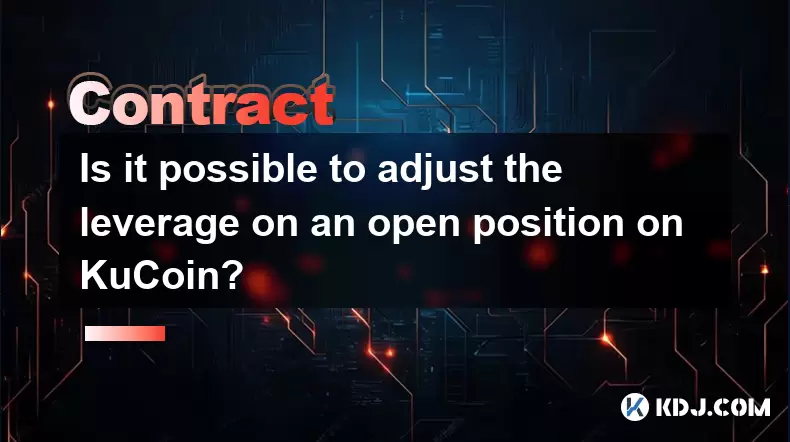
Is it possible to adjust the leverage on an open position on KuCoin?
Aug 09,2025 at 08:21pm
Understanding Leverage in KuCoin Futures TradingLeverage in KuCoin Futures allows traders to amplify their exposure to price movements by borrowing fu...
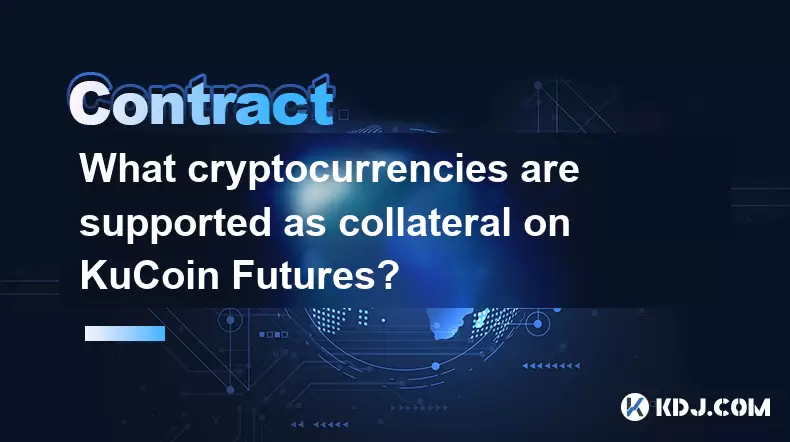
What cryptocurrencies are supported as collateral on KuCoin Futures?
Aug 11,2025 at 04:21am
Overview of KuCoin Futures and Collateral MechanismKuCoin Futures is a derivatives trading platform that allows users to trade perpetual and delivery ...
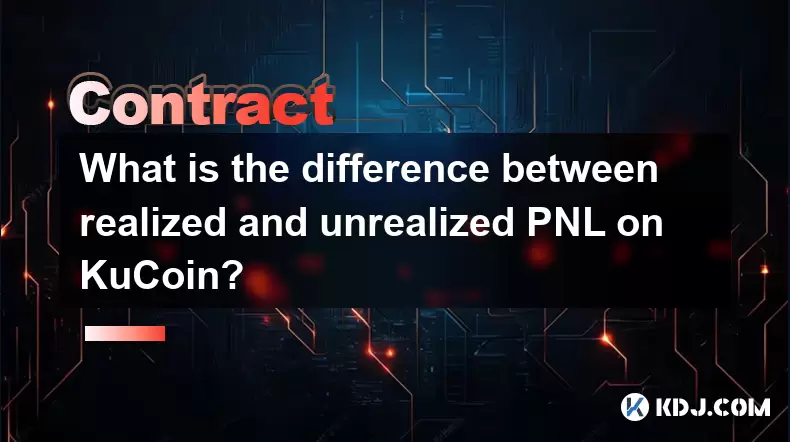
What is the difference between realized and unrealized PNL on KuCoin?
Aug 09,2025 at 01:49am
Understanding Realized and Unrealized PNL on KuCoinWhen trading on KuCoin, especially in futures and perpetual contracts, understanding the distinctio...
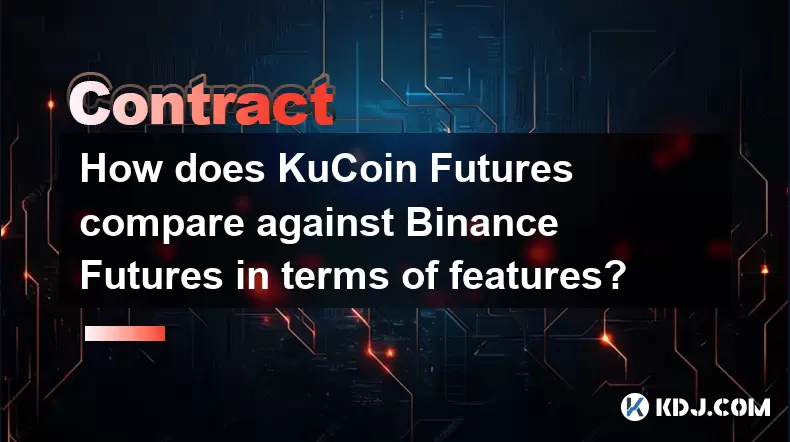
How does KuCoin Futures compare against Binance Futures in terms of features?
Aug 09,2025 at 03:22am
Trading Interface and User ExperienceThe trading interface is a critical component when comparing KuCoin Futures and Binance Futures, as it directly i...
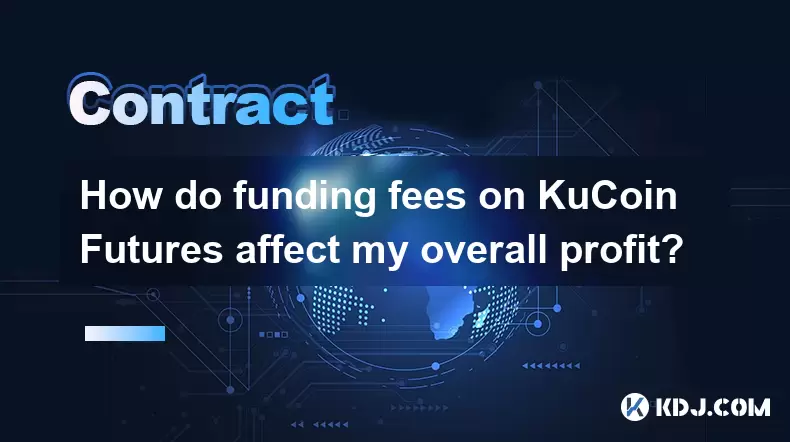
How do funding fees on KuCoin Futures affect my overall profit?
Aug 09,2025 at 08:22am
Understanding Funding Fees on KuCoin FuturesFunding fees on KuCoin Futures are periodic payments exchanged between long and short position holders to ...
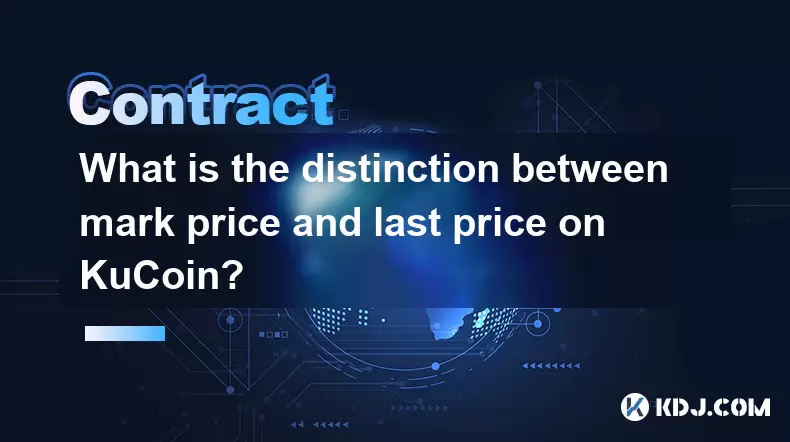
What is the distinction between mark price and last price on KuCoin?
Aug 08,2025 at 01:58pm
Understanding the Basics of Price in Cryptocurrency TradingIn cryptocurrency exchanges like KuCoin, two key price indicators frequently appear on trad...

Is it possible to adjust the leverage on an open position on KuCoin?
Aug 09,2025 at 08:21pm
Understanding Leverage in KuCoin Futures TradingLeverage in KuCoin Futures allows traders to amplify their exposure to price movements by borrowing fu...

What cryptocurrencies are supported as collateral on KuCoin Futures?
Aug 11,2025 at 04:21am
Overview of KuCoin Futures and Collateral MechanismKuCoin Futures is a derivatives trading platform that allows users to trade perpetual and delivery ...

What is the difference between realized and unrealized PNL on KuCoin?
Aug 09,2025 at 01:49am
Understanding Realized and Unrealized PNL on KuCoinWhen trading on KuCoin, especially in futures and perpetual contracts, understanding the distinctio...

How does KuCoin Futures compare against Binance Futures in terms of features?
Aug 09,2025 at 03:22am
Trading Interface and User ExperienceThe trading interface is a critical component when comparing KuCoin Futures and Binance Futures, as it directly i...

How do funding fees on KuCoin Futures affect my overall profit?
Aug 09,2025 at 08:22am
Understanding Funding Fees on KuCoin FuturesFunding fees on KuCoin Futures are periodic payments exchanged between long and short position holders to ...

What is the distinction between mark price and last price on KuCoin?
Aug 08,2025 at 01:58pm
Understanding the Basics of Price in Cryptocurrency TradingIn cryptocurrency exchanges like KuCoin, two key price indicators frequently appear on trad...
See all articles

























































































